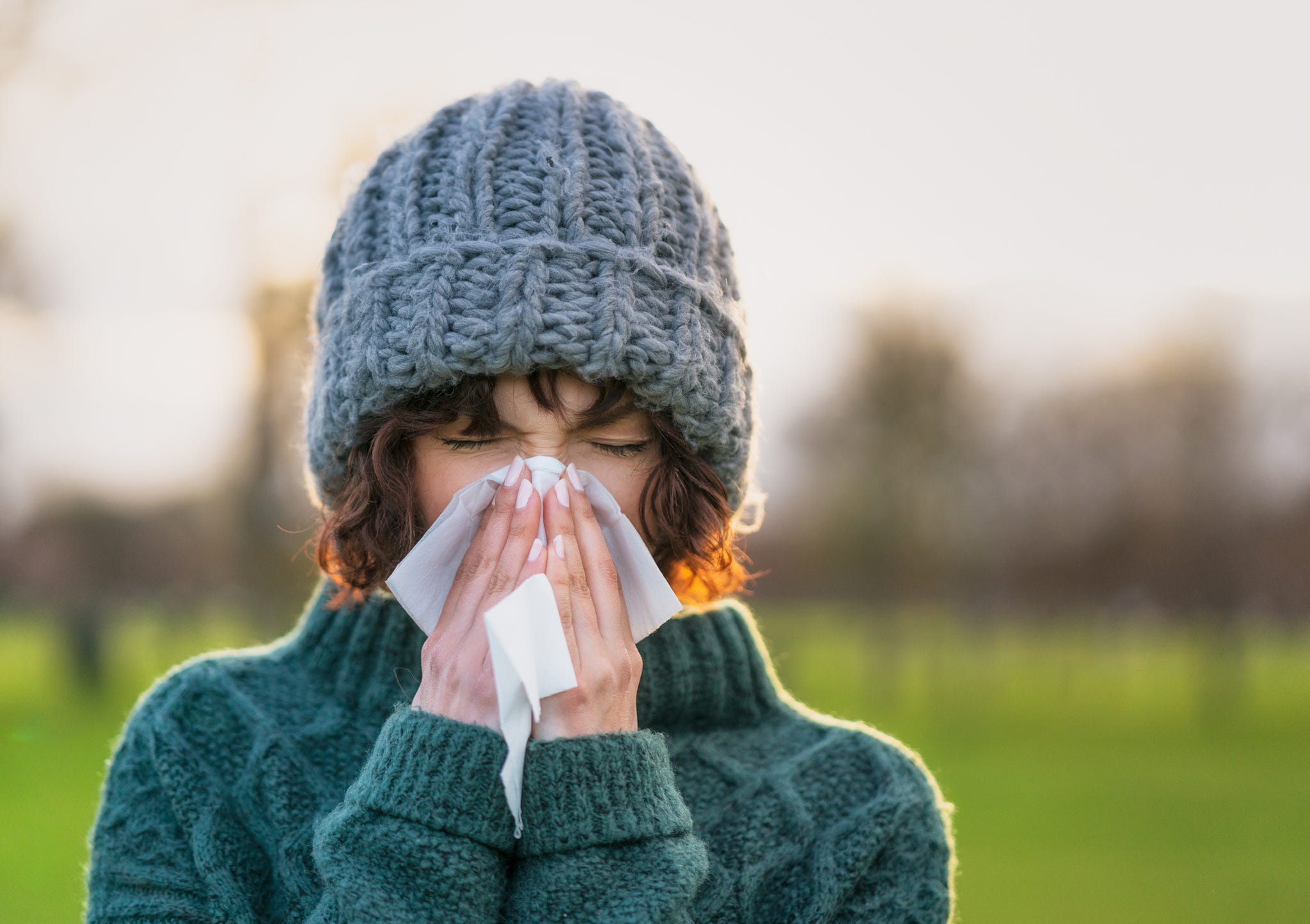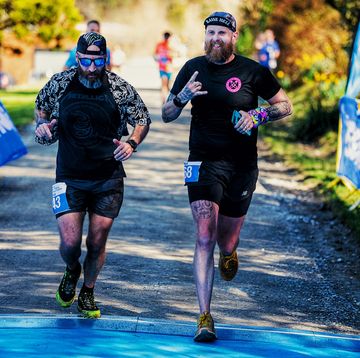Sometimes the idea of clearing your head with a run in the fresh air sounds like an appealing choice when you're suffering with a stuffy cold. But other times all you want to do is crawl under the covers and avoid running. But how do you know which tactic is best and is it ever a good idea to run when you are feeling under the weather? Here at RW we weight up the pros and cons, and examine what the medical experts advise.
Should you go running when you've got a cold?
Some doctors and other health care professionals suggest obeying the 'neck rule' when deciding whether to head out the door or not when you're suffering with a cold. The idea being that symptoms that are involving the neck and below - so that's sore throats, coughs, chest congestion, bronchial infections, body aches, chills, vomiting, diarrhoea or swollen glands - require time off from running. Whereas any symptoms above the neck - a runny nose, stuffiness, or sneezing (what some people may refer to as a 'head cold') - generally don't indicate anything more serious, and so don’t require time off.
Though it’s certainly not an exact science, running can sometimes actually help with certain cold symptoms. This is because exercise releases adrenaline, also called epinephrine, which is itself a natural decongestant. This is why going for a run when your nose feels very stuffy can actually help clear out nasal passages, even if only temporarily.
But if you decide to run, just try and keep the pace easy, and stick to shorter distances. Even if you are on a training schedule for a marathon race, it's better to recover than to push through a hard run and potentially make your symptoms worse.
These runs should be about gently maintaining your fitness while you are feeling less than 100%, not about improving it.
Watch for dizziness, nausea, elevated heart rate or abnormal sweating - and stop running immediately if you experience any of these symptoms.
Even with precautions, training through an illness - even a mild one like a cold - is not without risk. The odds are low, but it is possible that runners could escalate a simple cold into something more serious, like a sinus infection, a respiratory tract infection or even pneumonia. It’s very important to listen to your body - when in doubt, sit it out, because you might wind up having to take much more time off from training. Skipping a few days is not going to have a serious impact on your training nor make you less fit, while pushing through might just set you back.
When should you return to running after suffering with a cold?
It’s best to wait a full 24 hours after your symptoms have gone, but especially if you have had a raised temperature or fever, before you go back into training. Again, it's best to resume with short, easy paced runs and rebuild distance gradually. If needed, incorporating walk breaks into your runs can also assist with adding to your fitness and distance.
While you are resting
Rest, drink lots of fluids and monitor your symptoms closely. Nobody wants to waste doctor's time, but if your symptoms are concerning you and are more serious than a standard cold, you can of course seek medical advice. By taking care of yourself, the odds are in your favour that you will be ready for that next long run.
Does running make more me more likely to get a cold?
There is some limited evidence that runners who train at high levels - like elite athletes - may be at greater risk of getting respiratory infections. And some research also suggests that marathon runners have more upper respiratory track infections when they are at their peak mileage, and in the period immediately following a marathon itself.
This may be due to many factors. The intensity of hard training may have an effect on the immune system, but in the immediate post-race period, it may also be related to other factors such as stress, inadequate recovery time and fatigue from the training and race. Again, it's important to rest and recover fully - and in the immediate aftermath of a big race, you have nothing to gain by going back to running too quickly anyway.












